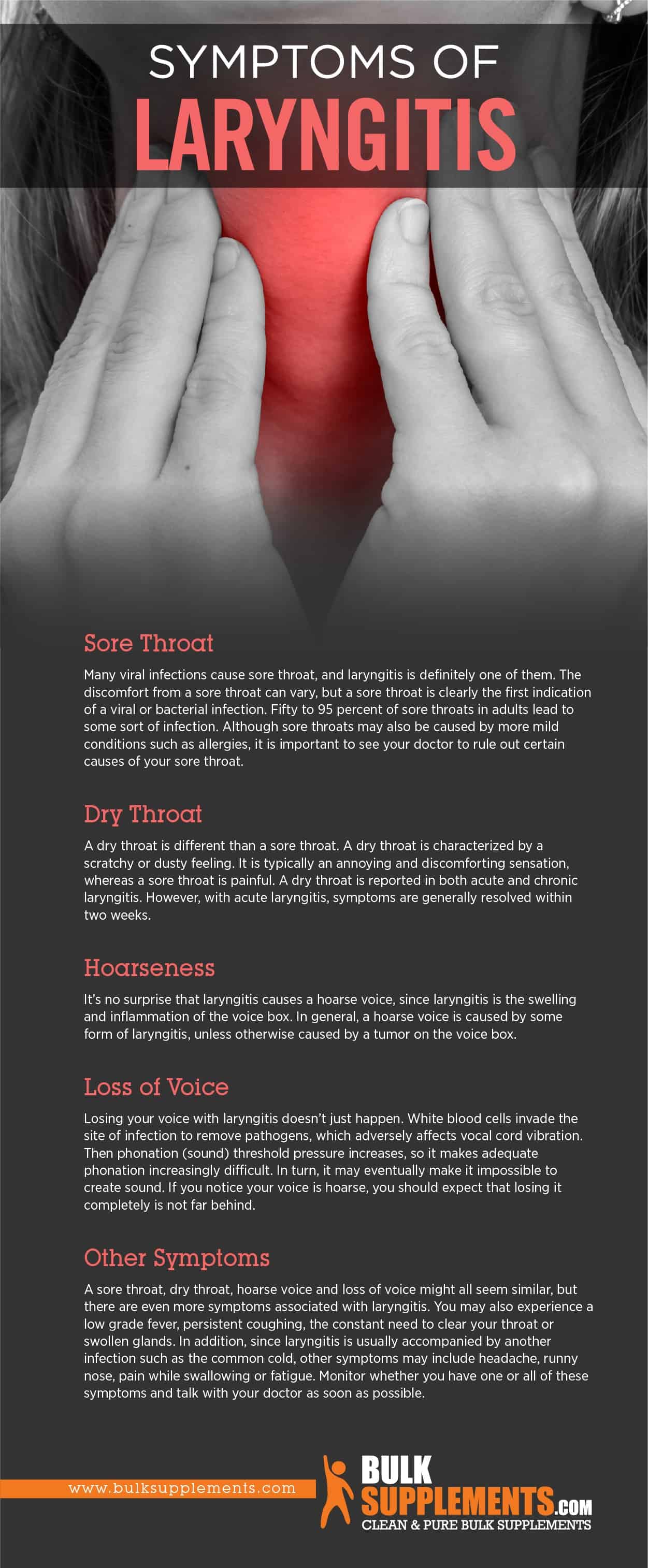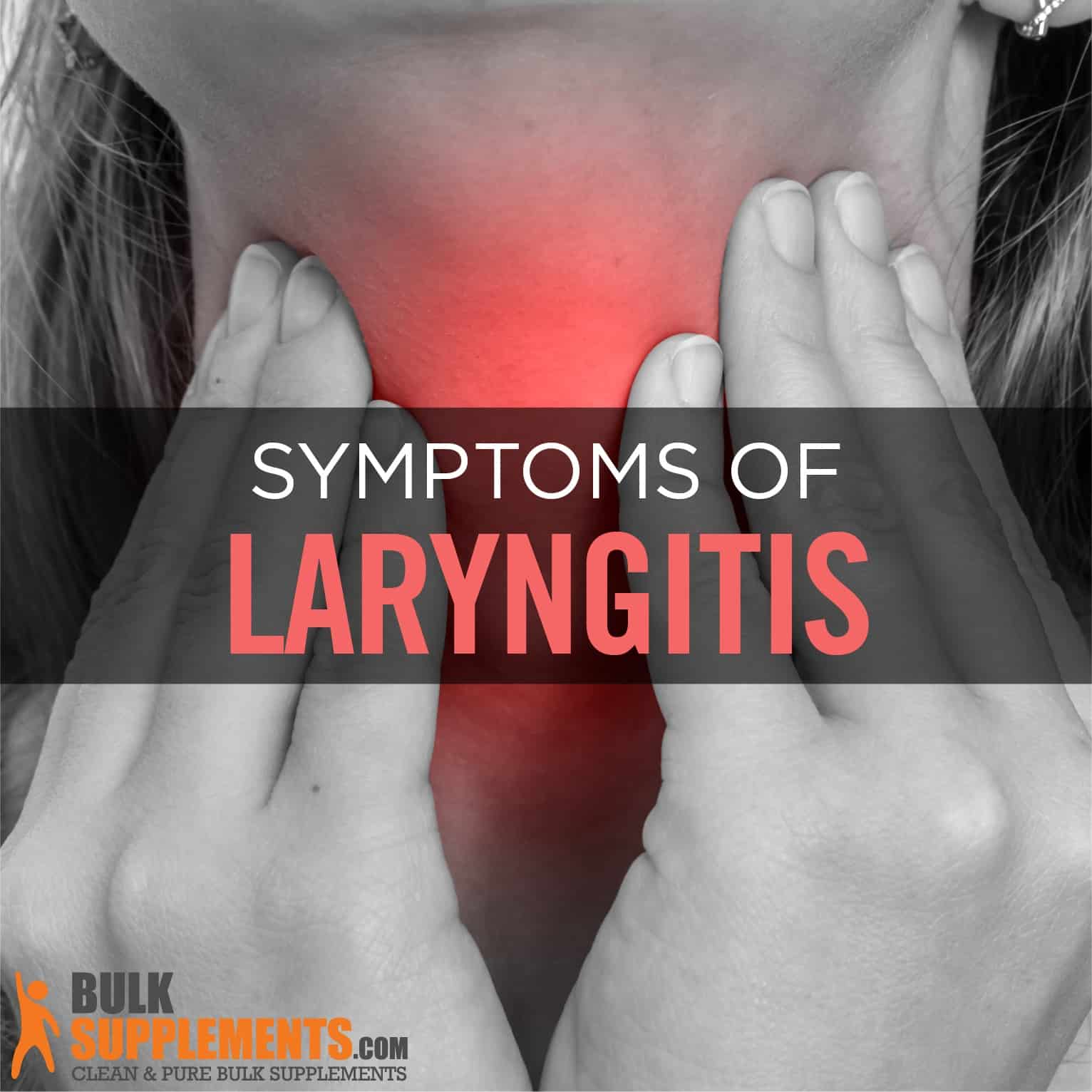This article explains what laryngitis is and why it occurs. Acute viral laryngitis: This form of laryngitis is characterized by lower vocal pitch as well as hoarseness. You should not rely on this feature for medical, financial, or legal advice. Find out about laryngitis, which is when your voice box becomes irritated or swollen. Laryngitis is often clinically diagnosed, with acute disease presenting with hoarseness that. Accompanying signs of infectious laryngitis include odynophagia, cough, fever, and respiratory distress. A laringite é a inflamação da laringe, que pode causar edema das pregas vocais verdadeiras. · laryngeal cancer is frequently associated with smoking and alcohol consumption. Acg clinical guideline for the diagnosis and management of gastroesophageal reflux disease. In a study of patients in primary care, t. As causas podem ser infecciosas ou não infecciosas (por exemplo, tensão vocal, laringite por refluxo, laringite irritativa crônica). Physical examination may demonstrate prostate size/volume ≥30 g, nodules or tenderness suspicious of prostate. This ai-generated answer is powered by openai. · laryngitis is an inflammation of your larynx (voice box), a small structure that connects your throat to your windpipe. · extraesophageal symptoms include cough, laryngitis , asthma, or dental erosion. Causes may be infectious or noninfectious (e. g. , vocal strain, reflux laryngitis , chronic irritative laryngitis ). · laryngitis can also be secondary to post nasal drip and/or sinus infection and bacterial aetiologies should be ruled out in a patient with nasal symptoms. It can range from a small amount of blood-streaked sputum to massive bleeding with life-threatening consequences due to airway obstruction, hypoxaemia, and haemodynamic instability. Symptoms of laryngitis usually come on suddenly and get worse during the first 3 days. · benign prostatic hyperplasia (bph) presents with both storage symptoms (frequency, urgency, nocturia, and incontinence) and voiding symptoms (weak stream, dribbling, dysuria, straining). Ai-generated content may sometimes contain inaccurate, incomplete, or biased information, so make sure you do additional research. Hoarseness, dysphonia, sore throat, difficulty swallowing, referred otalgia, vocal cord lesions on indirect laryngoscopy, and neck mass/adenopathy that persists for >3 weeks are sentinel signs that should be evaluated. The absence of cough, nasal congestion, and nasal discharge suggests a bacterial etiology. · laryngitis can be acute or chronic, infectious or non-infectious. It also describes … · laryngitis is an inflammation of your voice box (larynx) from overuse, irritation or infection. Hoarseness is no. · dysphonia, also known as hoarseness, is a general term used to describe a variety of changes in voice quality. · dealing with laryngitis? Laryngitis is inflammation of the larynx, which can lead to edema of the true vocal folds. Diagnosis begins with history and physical exam and is confirmed by rapid antigen detection tests ( in case of group a [gas] pharyngitis),. Find out what it is, its symptoms, and how to treat it with this comprehensive guide. [1] katz po, dunbar kb, schnoll-sussman fh, et al. Laryngitis occurs because of infection, irritation or … Discover prevention tips and lifestyle changes to manage and reduce laryngitis risks. · acute pharyngitis is characterized by acute onset of sore throat; A laringite aguda geralmente é um diagnóstico clínico, caracterizado por. · laryngitis is an inflammation of the mucus membranes of your voice box (larynx), which causes you to have a hoarse voice. · depending on the type of infection you have, the condition may resolve on its own or require treatment. Chronic laryngitis is the presence of laryngeal inflammatory symptoms including hoarseness, globus, pain, dysphagia, throat clearing, or cough lasting >3 weeks. Inside the larynx are your vocal cords — two folds of mucous membrane covering … · haemoptysis is the coughing of blood from a source below the glottis. Creating an answer for you using ai. · laryngitis can also be secondary to post nasal drip and/or sinus infection and bacterial etiologies should be ruled out in a patient with nasal symptoms. Individuals with hoarseness or voice changes that fail to resolve or improve within a 4 week period should be referred for evaluation and visualization of the larynx. [1][21] the symptoms in this form of laryngitis are usually present for less than 1 … Laryngitis can’t be fully prevented, but you can reduce your chances of getting laryngitis by not yelling, singing loudly or overusing your voice, and by not smoking. It is most commonly due to an infection, usually a virus. · learn about laryngitis, its symptoms, causes, diagnosis, and treatment options. Get your voice back in no time!
Laryngitis In Cats: The Symptoms You Can'T Afford To Miss
This article explains what laryngitis is and why it occurs. Acute viral laryngitis: This form of laryngitis is characterized by lower vocal pitch as well...








